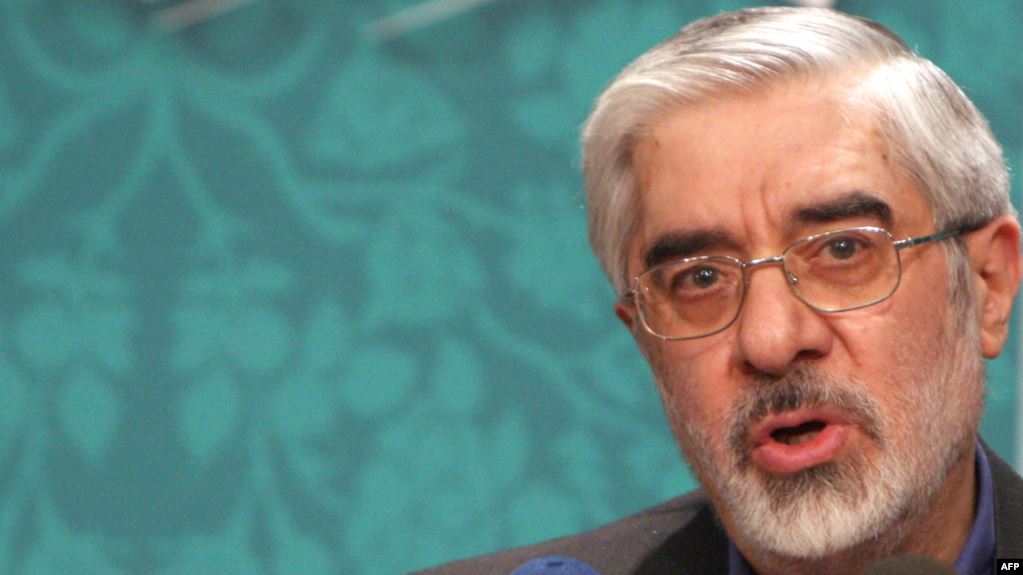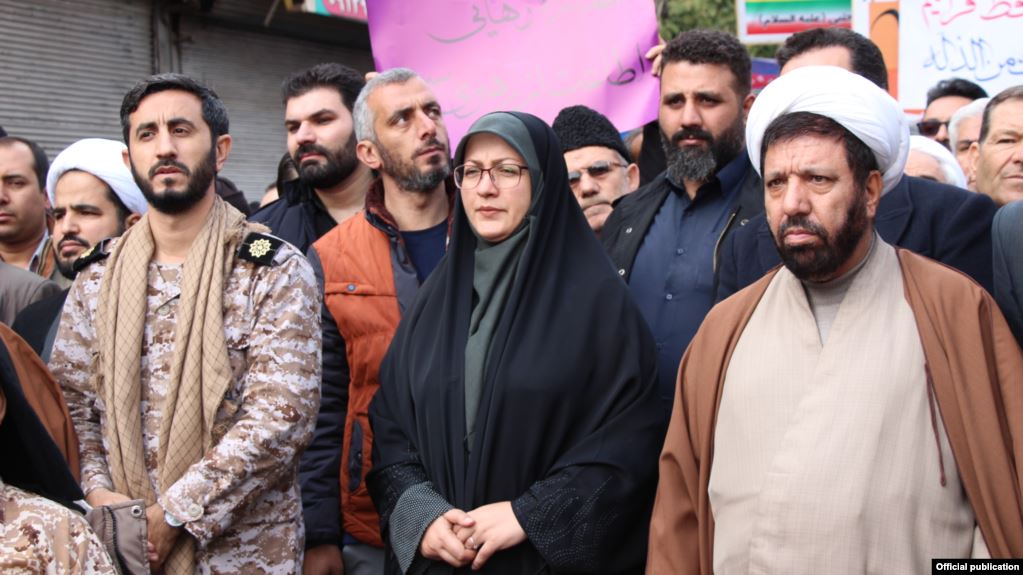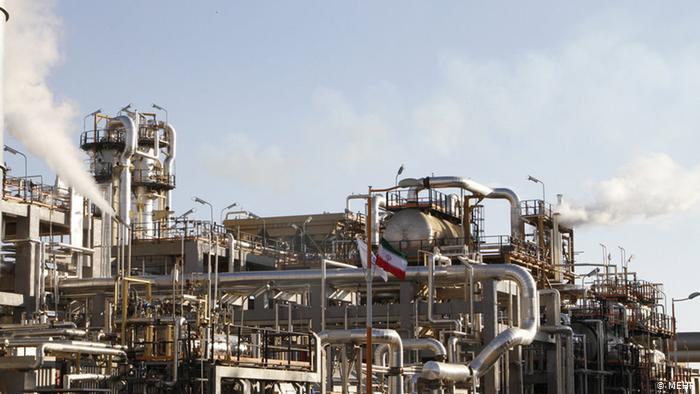![]()
“Reformists” have lost their support base
The editorial of Setareh Sobh, written by academic Sadegh Zibakalam, explains that Rouhani’s government is unaccountable, which has resulted in the “reformists” losing their popular support base. Zibakalam focuses on the recent popular protests in reaction to the price of gasoline tripling as a clear example of Rouhani not being accountable, in particular, to the people who voted for him.
As someone who gained a lot of votes for Hassan Rouhani in the 2013 and 2017 presidential elections by going to Iran’s provinces to encourage people to vote for him, I am critical of his actions and words. It seems that he has no commitments to the 24 million people who voted for him in 2017.
According to the Constitution, he is the second most important individual in the country, and he is responsible for enforcing the Constitution and defending the people’s rights. But after the gasoline price was increased which triggered popular protests, his reaction was nothing but a joke, with him saying that he too came to know about it the morning after the price hike was announced.
This is bitter and painful. During the past 2 years, Rouhani has taken no proper political, economic, and cultural measures, and he hasn’t implemented any of the changes he had promised. Surprisingly, after raising the gasoline price, he acted as if nothing had happened, as if he had no concern for the repercussions of such a decision on the country and people.
In the case of raising the price of gasoline , he could have explained to the people, even if his explanations were unconvincing. But the fact that the people were not informed of the gasoline price hike shows that the government doesn’t see it as its duty to provide explanations to the people nor is it concerned about public accountability. Rouhani keeps saying again and again that everyone should be held accountable, and people voted for him to account those in power.
Setareh Sobh
Iran’s president acts as the country’s coordinator
The editorial of Arman Melli deals with the dual structure of political power in Iran and its implications. Power is concentrated in the establishment ruled by the supreme leader, but it is the government headed by the president that is held accountable for the decisions made by the establishment.
The political structure in Iran is divided into two halves. Power is concentrated in one half, while the other half must be held accountable to the people. Power is concentrated in the establishment, because, as stipulated in Iran’s Constitution, it derives its legitimacy from God.
The other half is the government. People vote directly for the president. According to the Constitution, the president is the second most powerful person in the country, and he is responsible for meeting public demands and enforcing the Constitution.
It is said that the president must be held accountable for all issues. But he is only the head of the executive branch; total power is not in his hands. He cannot make important decisions in domestic and foreign affairs. As a result, his role is similar to that of a coordinator.
In their first terms, Iranian presidents are in their honeymoon period — enjoying popular support and slogans in their favor. In their second terms, presidents have to confront para-governmental entities, while losing their popular support base. That is because presidential power is much less than what is expected. This results in a rift between the people and government, as well as a rift between the government and other para-governmental entities and the establishment.
The governments of Hashemi Rafsanjani, Khatami, and Ahmadinejad, all experienced the same thing This is a structural shortcoming, and sooner or later it must be resolved.
Right now, Hassan Rouhani must realize that he is nothing but a coordinator in enforcing power. He must know that if he wants to be remembered by the people and history for having done something meaningful, he must courageously and clearly tell the truth regarding where power is concentrated in Iran’s political structure to the people and defend their rights.
Arman Melli
Sedition or protest?
The editorial of Mostaghel, written by Ahmad Heidari, a religious scholar, explains the implications of the recent protests in Iran being declared seditious. In the recent protests in Iran triggered by the price of gasoline rising , at least 208 were killed and thousands were injured and arrested.
The official media – extensively – called the recent protests in Iran seditious for the following reasons:
1. If declared seditious, they can say they have been pre-planned. The official media announced that these protests were planned – similar to the ones in 1999, 2009, and 2017.
2. The other feature of sedition is that it has ties with foreigners, which is why in the official media, they are trying to pin these protests on “external enemies”.
3. Sedition is directed at overthrowing the establishment. By declaring the protests seditious, the protesters are referred to as foreign agents and the “enemies of God”. That is why certain media channels have demanded those arrested to be treated as “enemies of God”.
4. By linking the protests to sedition, public protests against extensive corruption, institutionalized looting, mismanagement, and poor governance are being undermined. This is why these media channels have focused on condemning the “rioters and seditionists”, and there is no talk of what agitated these protests.
5. By labeling the protests as seditious, it is not the experts who are called upon to analyze them. It is up to the security forces to analyze these protests. Most experts and economists, however, say that the root cause of these protests was not just the government raising the price of gasoline, but extensive disarray which might spark new protests in the future.
6. If these protests are seen as being acts of sedition, then the dead and the injured will not be treated with respect. That is why these days the establishment’s media is not talking about respecting the dead and the injured; they consider all of them as guilty, unless proven otherwise.
Not paying attention to what agitated the protests and not listening to the protesters’ demands can only add to the social rage that exists and add fuel to the fire. So much so that the next explosion might be uncontrollable!
Mostaghel
The Iranian Parliament must return to do its job
The writer of the editorial, Tehran MP Ali Motahari, explains why parliament has lost its status as the legislative body in Iran. Following the recent protests in Iran over the rise in gasoline price, many experts hold that the Iranian parliament has lost its last shred of credibility, as it wasn’t even informed of when and how the price hike was to be implemented.
Iran’s parliament is far from its ideal role , and it seems that as a result of certain measures, this important institute has become more and more restricted. These measures have been taken within and beyond the parliament.
The formation of the Council for Economic Coordination — presided by the heads of the three branches of government — is one of these restricting factors. The Council was created to facilitate sidestepping the US sanctions. But this Council has stepped into other domains to make decisions about the country’s large-scale issues – a task for which the parliament and the government are responsible.
As a result of this Council , the parliament has been gradually marginalized. The Council must be temporary and must be gradually dismantled. If more of the affairs of the country are discussed via natural, and lawful processes, this will be better for the country and more democratic.
The Expediency Council also has restricted the parliament in Iran. This Council can easily say that a piece of legislation ratified by the parliament is against the establishment’s general policies and halt it. Currently, some of the parliament’s plans and bills have been suspended for the same reason. That too has tied the parliament’s hands.
There are certain entities that are not mentioned in the Constitution, but they make legislation, such as the Supreme Council of the Cultural Revolution, the Supreme Council of Cyberspace, and the Supreme National Security Council.
The poor performance of lawmakers – as in the case of raising the price of gasoline – has resulted in undermining the Iranian parliament. The other issue which ties the parliament’s hands is that in certain important issues, some people bring unofficial messages from the supreme leader, saying that he disagrees with this or that issue. Such measures create restrictions for the parliament.
Iran
![]()
Mir Hossein Mousavi slams the Islamic Republic for cracking down on the recent protests

Mir Hossein Mousavi, Iran’s former presidential candidate, who led popular protests known as the Green Movement after the country’s 2009 presidential election, issued a statement in which he fiercely criticized the Islamic Republic for its recent crackdown on protesters while calling for those who ordered and carried out “this massacre” to be tried in an “open trial.”
Mousavi, who has been under house arrest since 2011, said in his statement that those who shot people in Iran’s recent unrest were agents of a religious regime and their commander was the “Vali Faqih who has absolute authority ”, referring to Ali Khamenei. He also pointed to IRGC officials who said the protests were similar to a “world war. ”
Mir Hossein Mousavi, who also served as Iran’s last prime minister from 1981-1989, compared these protests to those of the 1979 Islamic Revolution and said this “violent and bloody confrontation” with the people is a reminder of the cruel killing in Tehran’s Jaleh Circle in September of 1979 by the Shah’s forces. Mousavi added that the Islamic Republic “should recall the consequences of the massacre that happened in Tehran’s Jaleh Circle”.
What happened in September of 1979 is considered as a turning point in hastening the collapse of the Shah’s regime in Iran.
Mir Hossein Mousavi’s statement was published a few days after Mehdi Karrubi, another leader of the Green Movement, wrote a letter in which he lambasted the Islamic Republic for its “unspeakable violence” while warning of another revolution in Iran.
Following Iran’s presidential election in 2009, millions of people took to the streets to protest its results. Dozens were killed, and thousands were taken into custody. Moreover, two presidential candidates Mir Hossein Mousavi and Mehdi Karrubi as well as Zahra Rahnavard, Mousavi’s wife, have been under house arrest since 2009.
Radio Farda
Vaeseghi admits to giving the order to shoot people;
Recent protests were staged all over Iran, except for two provinces, says an IRGC official

Layla Vaseghi, governor of Tehran’s Ghods district, declared that she personally ordered police to shoot at anyone who entered her office during the recent protests against gasoline prices tripling in Iran.
Vaseghi emphasized that the Islamic Revolutionary Guards Corps (IRGC) were active in suppressing the protests in her district from the very first day. She, however, did not mention how many people were killed during the clashes at her office. According to the Kaleme website, 8 to 10 individuals were killed in the Ghods district which was one of the major centers of Iran’s November protests.
Meanwhile, the political deputy of the IRGC said that these protests were unprecedented in terms of scope, compared to the protests in 2009 and 2017 in the country.
Yadollah Javani added that the recent protests were lodged in 29 provinces and hundreds of cities all over the country. Iran has 31 provinces. He also noted 110 locations in Esfahan were scenes of protests and clashes, pointing to Fars and Tehran as places where most protest assemblies were held.
In the meantime, Anoushirvan Mohseni-Bandpay, governor of Tehran, announced that 2021 individuals were arrested in the city during the recent protests. He added a number of those individuals who had taken part in the protest assemblies for the first time were released. Tehran’s governor also said 29 gas stations, 140 banks, and 47 chain stores were damaged in Tehran during the November protests.
According to the latest report by Amnesty International, at least 208 people were killed in the recent nationwide protests in Iran.
Radio Farda
Entekhab Daily
Iran faces a $12bn budget deficit if it cannot sell oil

The continuation of sanctions and banning Iran from selling oil has created challenges for not only Rouhani’s government but also for Iranian households. If Iran cannot sell its oil properly and at a good price, it will face a $12bn budget deficit next year.
The budget bill for 2020-2021 is being prepared to be submitted to the Iranian parliament. The early estimates show that Rouhani’s government – under the pressure of sanctions, inflation, and closure of businesses – has exaggerated its revenues next year through imposing taxes and selling oil sell.
The problem starts with the oil revenues predicted next year. The government claims that it can gain about 10 to 12 billion dollars from selling and exporting oil. But economic analysis shows that something like a miracle needs to happen for this to come true.
Iran’s Plan and Budget Organization has predicted that the government must sell 700 to 800 thousand barrels of oil per day (bpd) next year. These numbers are included in the next year’s budget, but the oil sanctions have created serious problems for Iran selling oil. Rouhani’s government has managed to sell 300,000 bpd.
Although there are no signs of the sanctions being lifted, the head of the Plan and Budget Organization has predicted that Iran’s annual income from selling oil will be 10 to 12 billion dollars.
The government is determined to increase taxes and customs tariffs. This can be gathered from the budget bill for 2020-2021. Estimates show that there will be a 24% increase in government income, which means that people should pay more taxes and the cost of goods will go up as well.
Deutche Welle
Iran and France; from mediation efforts to making threats

During the past six months, the French had only one dream: to preserve the nuclear deal (JCPOA) by convincing Iran and America to grant concessions to each other. To realize this dream, they frequently visited Tehran and Washington. But, eventually, they failed. Now the French seem to have changed their approach. After losing hope, they are now putting pressure on Iran. This is France’s and Europe’s last move to preserve the JCPOA – a move described by Iran as “irresponsible and unconstructive”.
Following the tough position of Europe against Iran, France’s foreign minister threatened Iran with activating a mechanism in the JCPOA which could lead to UN sanctions being re-imposed on Iran. France made this threat while Iran and Europe have not yet reached an agreement over how to preserve the JCPOA. Iran considers reducing its nuclear commitments as a means to preserve the JCPOA. On the other hand, the Europeans see this Iranian behavior as undermining the nuclear deal.
The French Foreign Minister Jean-Yves Le Drian said: “Every two months there is another dent (in the nuclear deal by Iran) to the point where today we ask ourselves, and I am saying this very clearly, about the implementation of the dispute resolution mechanism that exists in the deal.”
According to the dispute resolution mechanism, any party in the nuclear deal can take an issue to the JCPOA’s joint commission (consisting of Iran, Russia, China, Germany, France, and Britain). If the issue is not resolved in the joint commission, it will be referred to the UN Security Council. Now, if within a month the Security Council cannot reach an agreement to resolve the issue, the UN sanctions against Iran will be automatically enforced once again. In the framework of the JCPOA, this is called a trigger mechanism.
Le Drian accused Iran of attacking Saudi Arabia and arresting French citizens. In addition, he said that the recent widespread protests in Iran as well as the reaction of the Iranian regime to them have made it difficult to convince America to de-escalate the tensions. Pointing to the way Iranian leaders have treated the protesters, the French foreign minister said this proves that the US is right in putting maximum pressure on Iran.
Vista.ir
